Ebrahim Karimi, a professor in the Department of Physics at the University of Ottawa who hails from Saqqez in Eastern Kurdistan (northwestern Iran), was recently awarded the Royal Society of Canada’s prestigious Rutherford Memorial Medal. Educated at Kerman University of Medical Sciences, Karimi’s journey has taken him to various corners of the world, ultimately leading him to Canada, where he now teaches and conducts scientific research.
The Rutherford Memorial Medal is awarded annually by the Royal Society of Canada to recognize exceptional contributions in physics and chemistry. Named after renowned scientist Ernest Rutherford, who won the first Nobel Prize in Chemistry, this award is a testament to Karimi’s groundbreaking work in his field.
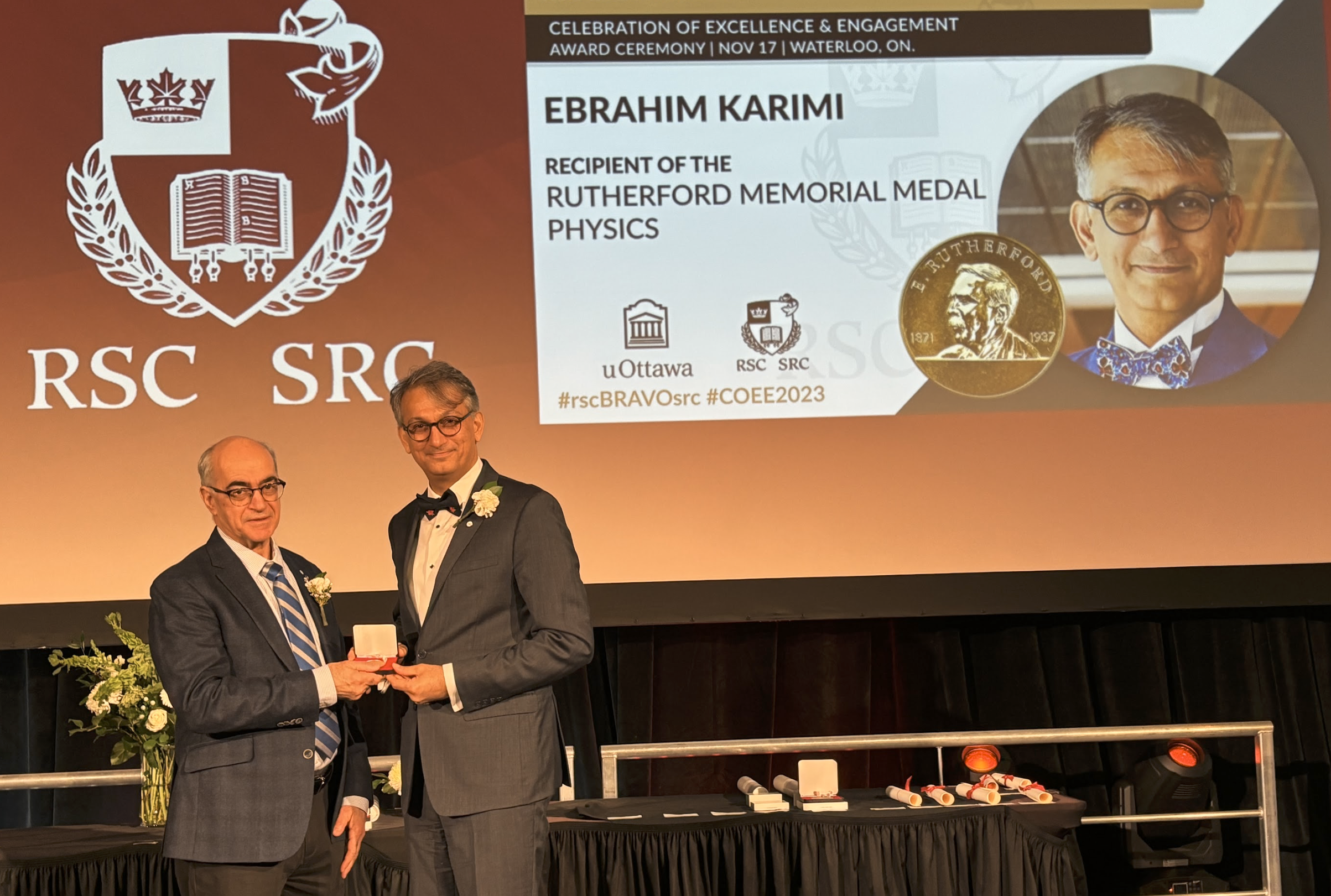
Growing up amid the Iran-Iraq War in the 1980s has shaped Karimi’s perspective on science and its potential to help communities facing adversity. Reflecting upon his childhood experiences, he recounted how witnessing bombs being dropped on his hometown inspired him to explore natural phenomena as a means of understanding and contributing positively to our world.
Karimi believes that, despite the challenges that children face growing up in Kurdistan or other conflict-torn regions such as the Middle East, they should remain hopeful about their futures. If they remain curious, put themselves on the right path and are supported by mentors along the way, there is so much they can achieve.
“There are bright futures if you stay on the right track, if you have the right ingredients and the right teachers,” Karimi said in an interview with Kurdistan Chronicle.
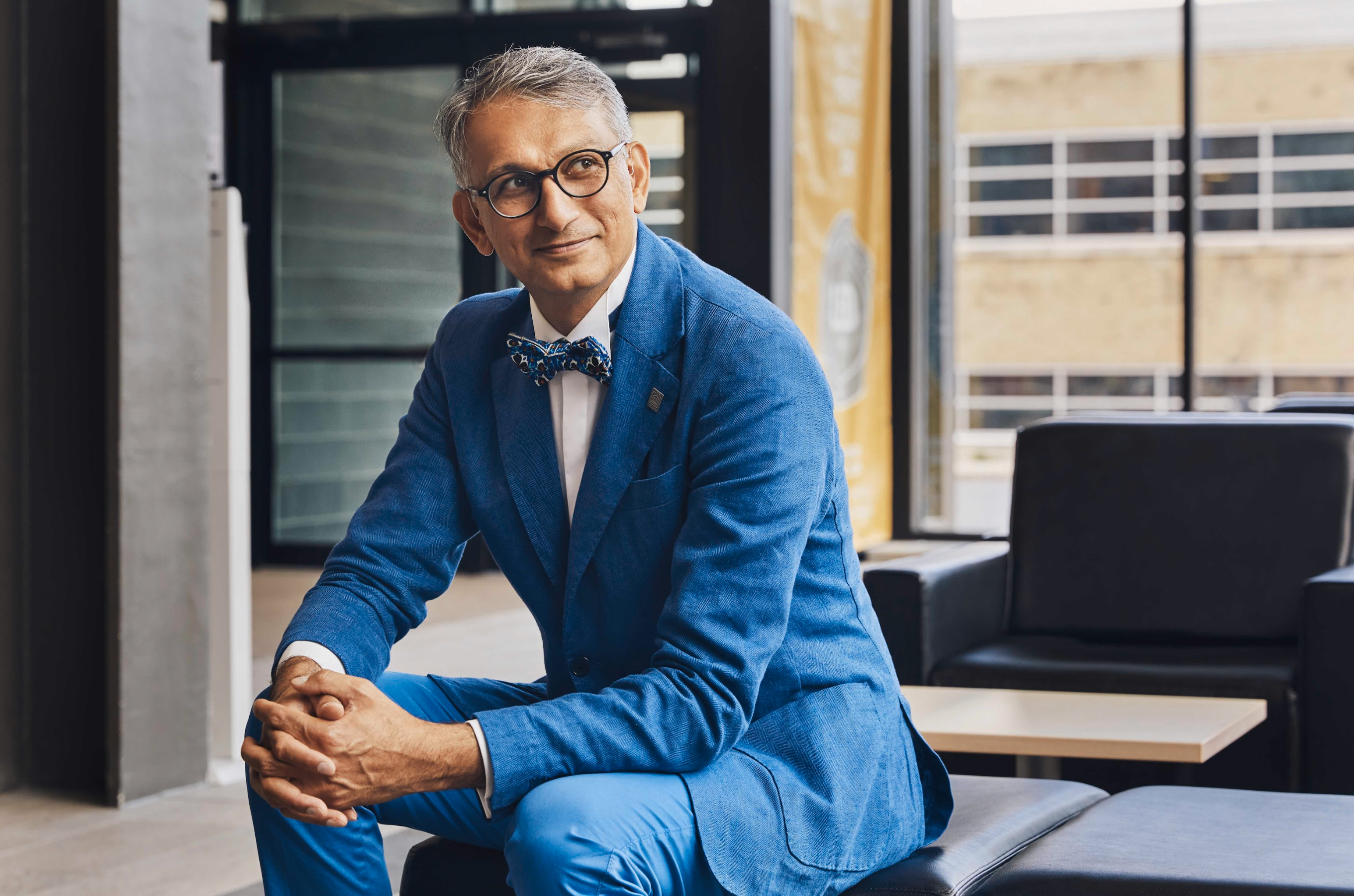
Quantum communications
Karimi explained his groundbreaking work in the fascinating world of quantum physics. With his team at the University of Ottawa, Karimi has made significant contributions to quantum communication, microscopy, and photonics.
Karimi’s interest in quantum photonics began with a desire to comprehend the smallest particles in our universe. He explains that everything we encounter is made up of these elementary particles. Photons, for example, are thought to be the smallest units of light. The quantum world operates under different rules than our classical world. In it, objects behave according to probability and no definite reality exists.
“In our classical world, I can run into a wall and be stopped,” says Karimi. “But in the quantum realm, quantum objects, e.g., electrons, can potentially pass through barriers like walls with a certain probability.” Such phenomena challenge our perception of reality and raise profound questions about how we understand existence itself.
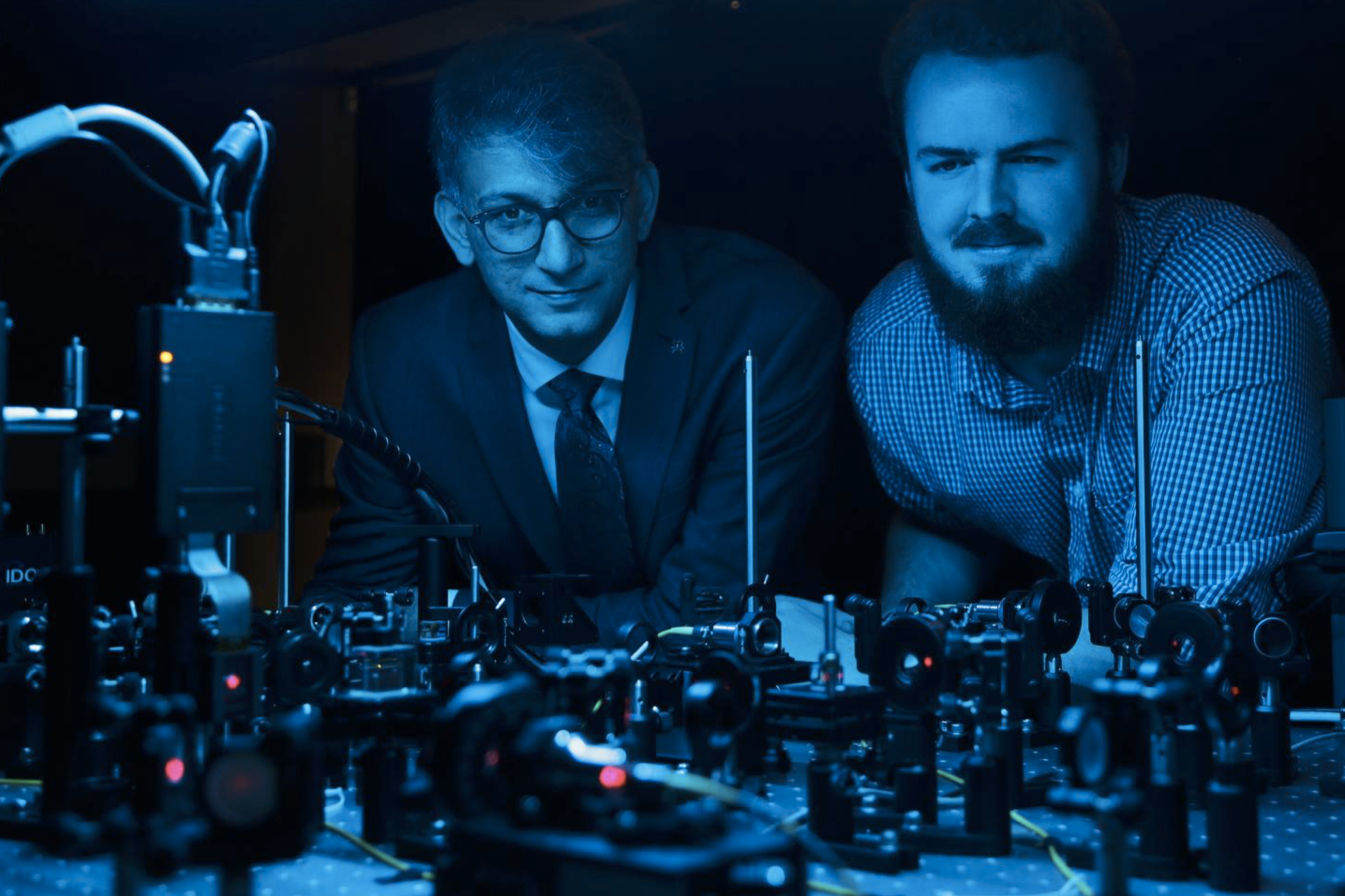
Karimi’s team has explored this enigmatic world by harnessing photons for secure communication purposes. Unlike traditional methods, which rely on complex mathematical calculations that are vulnerable to cybersecurity breaches, their approach utilizes principles from quantum physics to create impenetrable communication channels.
One notable achievement was their development of underwater quantum communication techniques. By transferring information between two objects underwater, in free space, or through fiber optic cables without compromising security or speed, they created new avenues for global connectivity.
Another breakthrough was their creation of a revolutionary tool called a “quantum microscope.” Traditional imaging methods often involve harmful radiation such as X-rays that pose health risks when used frequently. However, using an interaction-free ghost-imaging technique developed experimentally by Karimi’s team, researchers can detect objects without causing any damage – allowing for safer imaging practices.
“We wanted to see if it was possible to observe an object without interacting with it,” explains Karimi “And we succeeded! This technique allows us to detect objects in different places simultaneously.”
When asked about the practical applications of their work, Karimi noted that Canada is already home to numerous startups and companies dedicated to exploring quantum communication, sensing, and computing. His team helps advance quantum theory through experiments in their research laboratories.
Visitors to Karimi’s lab are treated to breathtaking demonstrations of cutting-edge technologies like quantum ghost imaging. Even prominent figures from politics and academia have been amazed by the possibilities unlocked through these breakthroughs.
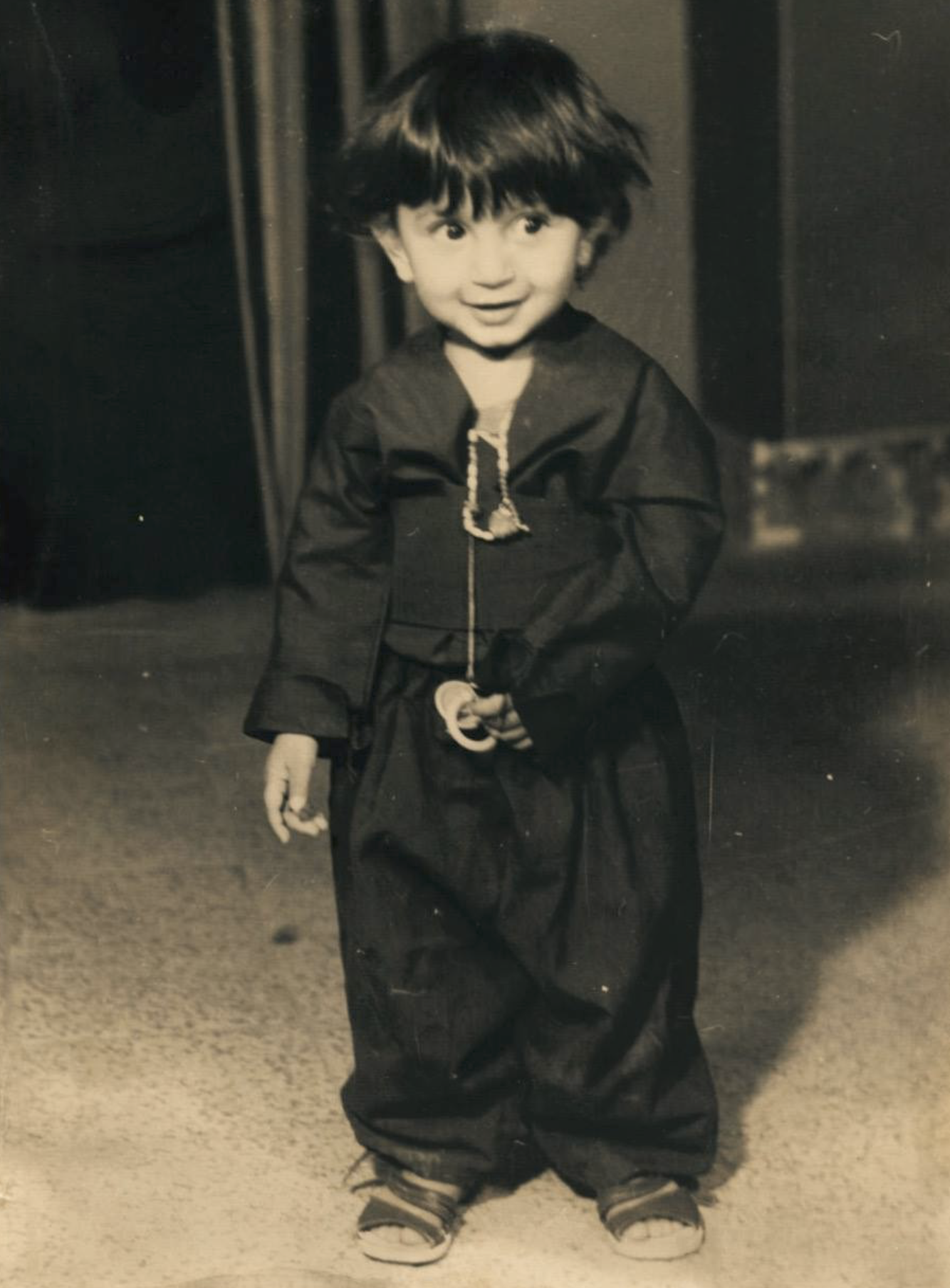
A glimpse into the future
Karimi shed light on how this innovative field is set to revolutionize various aspects of daily life soon.
“The quantum technology market is projected to reach a staggering $100 billion by 2040,” Karimi revealed. With such immense potential, it comes as no surprise that countries worldwide are investing heavily in their national quantum strategies. Canada alone has committed $360 million towards quantum technologies in 2022, while Germany independently invested a whopping $2 billion.
Karimi emphasized that the world is on the brink of what he calls “quantum revolution 2.0” – a new era that will transform communication, sensing, and computation. Just as the world moved from bulky radios and televisions to small portable devices and wired connections to Wi-Fi networks and witnessed advancements like 5G and 6G technologies, quantum technology promises unprecedented capabilities.
Quantum computing stands out as one of the most promising advancements within this realm. Companies like IBM and Google already possess functional prototypes capable of performing certain mathematical tasks efficiently and rapidly. This breakthrough becomes even more significant when considering areas like healthcare. With access to quantum computers, doctors could tailor treatments at an individual level based on precise information about how medications interact with specific bodies.
The benefits extend beyond computing power, as secure communication also takes center stage in this transformative era. While traditional communication systems may fall prey to hackers armed with powerful computers, quantum mechanics introduces unparalleled security measures through its “no-cloning theorem.” Information sent via secure quantum channels cannot be copied without introducing errors, making it virtually impenetrable to malicious attacks.
Another intriguing aspect that Karimi highlighted is quantum sensing. Quantum radars and microscopes offer heightened accuracy, enabling us to detect even the tiniest objects without causing any damage. These unparalleled advancements in technology are poised to reshape industries ranging from defense and healthcare to manufacturing and more.
However, as he embarks on this groundbreaking journey, ethical considerations loom large. Karimi stressed the importance of determining who should have access to such powerful technologies. Issues surrounding secure communication access and potential misuse highlight the need for a robust ethical framework that guides scientists’ actions in this new frontier.
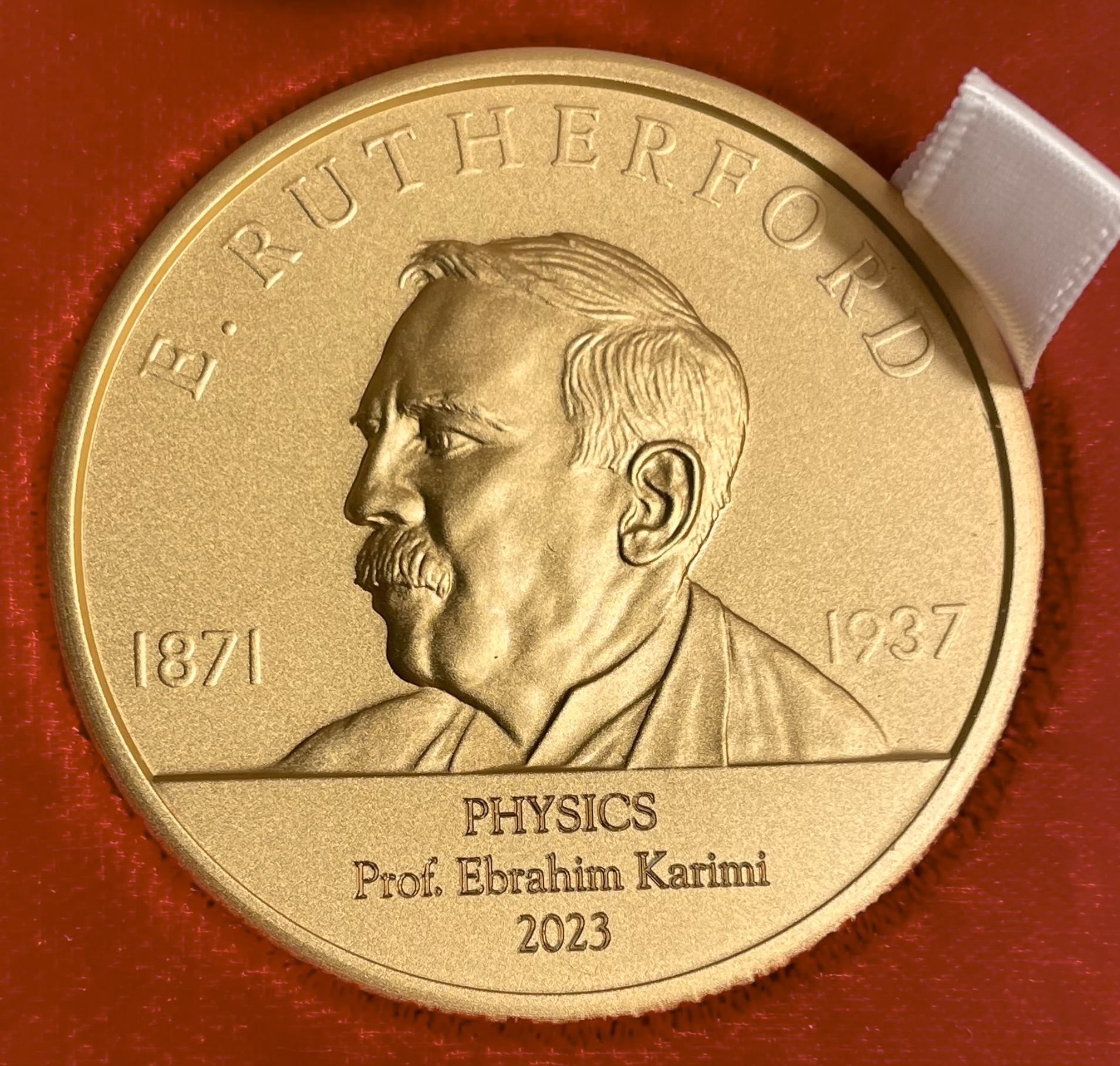
Scientific talent and Kurdistan’s future
Karimi discussed his vision for advancing research and education in the Kurdistan Region of Iraq (KRI). He emphasized the importance of an independent university system in promoting scientific progress, and believes that universities should be allowed to make their own decisions, while the Ministry of Higher Education and Scientific Research should prioritize various fields, particularly research science. He also suggests connecting the research and development sectors to encourage collaboration between academia and industry.
Karimi cited his colleague, the University of Ottawa’s Vice President of Research and Innovation, who stated, “Talent is a new currency.”
Karimi is adamant that the Kurdistan Regional Government should support talented Kurds who have yet to be discovered by academic institutions or other organizations.
Meanwhile, he believes that the KRI is “on the right track” to development and prosperity.
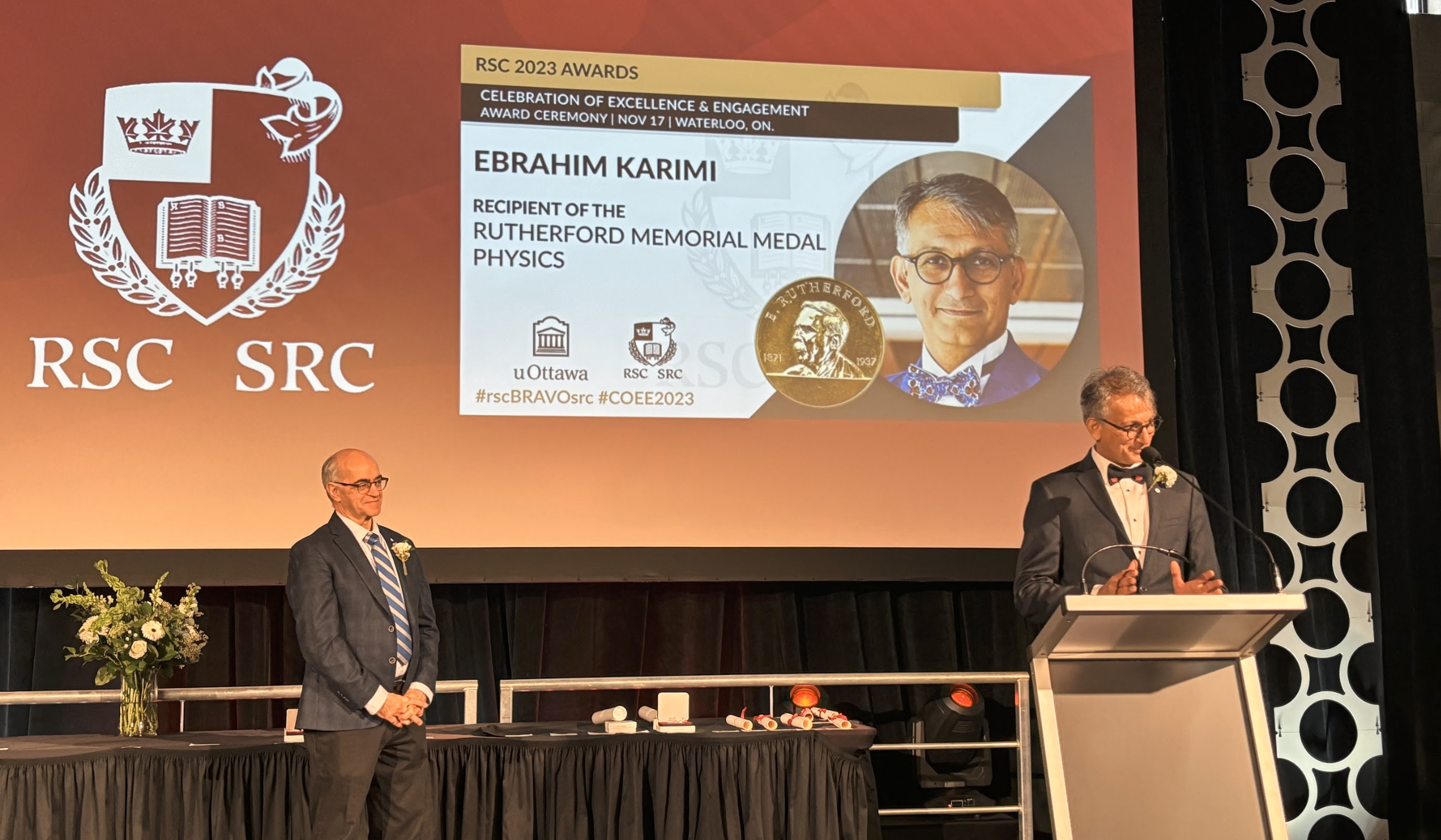
He gave two key pieces of advice to young Kurdish talents: “Think freely without being limited by financial constraints,” because ideas are often born out of creative thinking rather than material resources, and “Never give up,” because success does not come easily but requires perseverance.
Karimi’s conversation with Kurdistan Chronicle also touched upon primary and secondary education in the KRI, and he stressed the importance of instilling a love for science among students at an early age. He believes primary education plays a crucial role in shaping individuals’ lives beyond just scientific knowledge, fostering critical thinking skills that are needed throughout one’s lifetime.
Concerning the situation in Iran following the 2022 protests and the death of a young Iranian-Kurdish girl, Jina Amini (Mahsa Amini), Karimi expressed his dissatisfaction with the Iranian governments that have oppressed their own people. He believes that scientists have a responsibility to stand with the people rather than with dictatorial regimes.
In response to recent protests and violence in Iran, he raised funds for affected families and urged scientists worldwide to be mindful of how their work is used by those in power.
“Dictatorships are temporary; a brighter future awaits the Middle East, where borders will no longer hinder progress and individuals will be able to exercise their rights regardless of location,” Karimi concluded.
Qassim Khidhir has 15 years of experience in journalism and media development in Iraq. He has contributed to both local and international media outlets.

